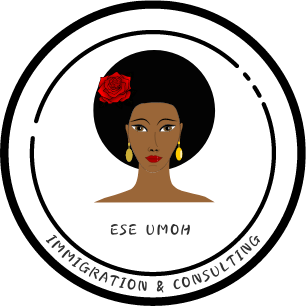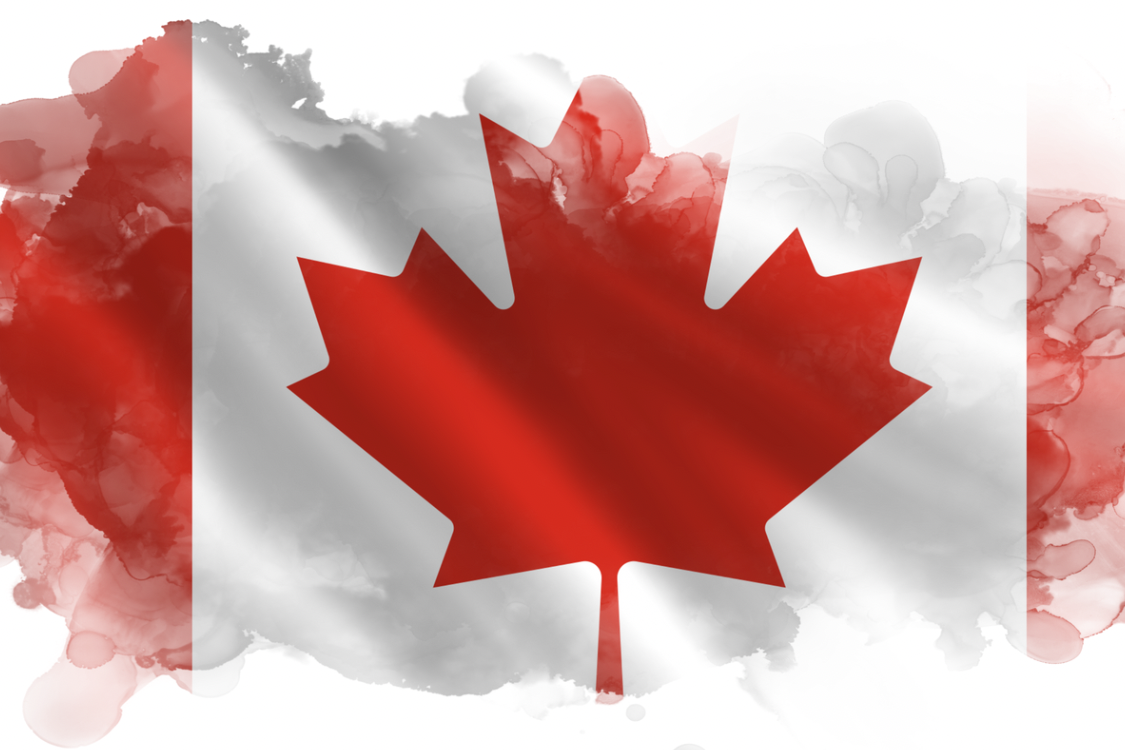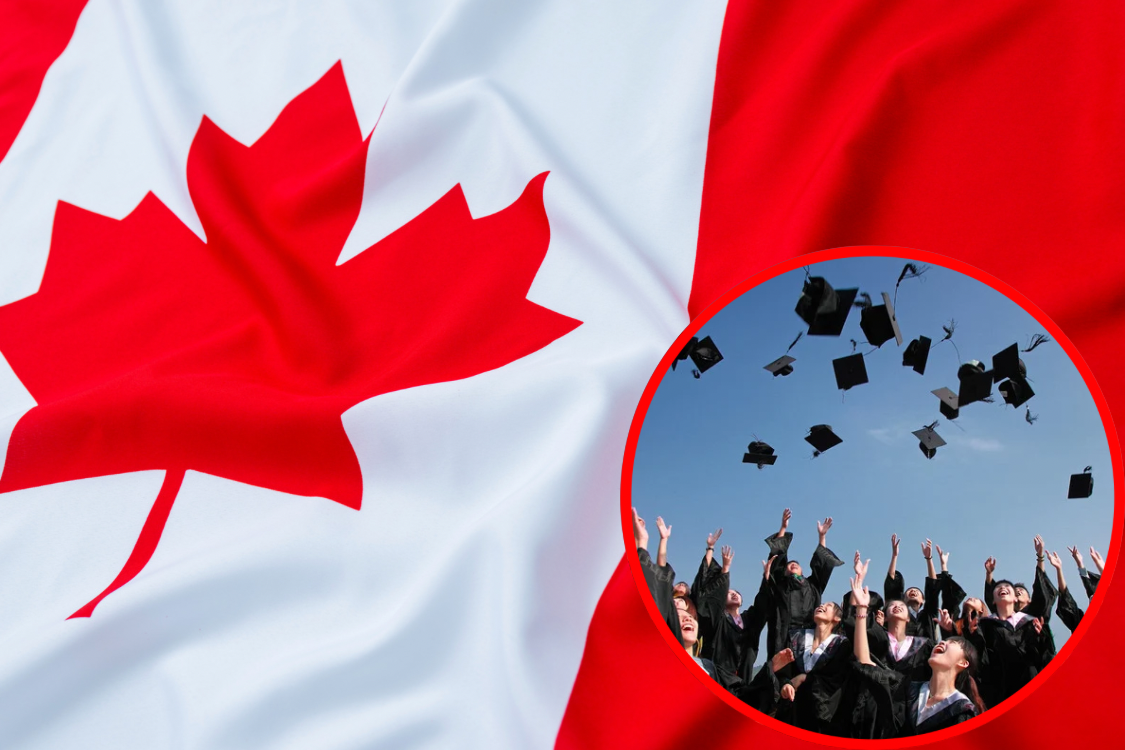| CIP 2021 code |
CIP 2021 Title |
| 1.8001 |
Veterinary medicine (DVM) |
| 1.8101 |
Veterinary sciences/veterinary clinical sciences, general (Cert., MS, MSc, PhD) |
| 1.8102 |
Comparative and laboratory animal medicine (Cert., MS, MSc, PhD) |
| 1.8103 |
Large animal/food animal and equine surgery and medicine (Cert., MS, MSc, PhD) |
| 1.8104 |
Small/companion animal surgery and medicine (Cert., MS, MSc, PhD) |
| 1.8105 |
Veterinary anatomy (Cert., MS, MSc, PhD) |
| 1.8106 |
Veterinary infectious diseases (Cert., MS, MSc, PhD) |
| 1.8107 |
Veterinary microbiology and immunobiology (Cert., MS, MSc, PhD) |
| 1.8108 |
Veterinary pathology and pathobiology (Cert., MS, MSc, PhD) |
| 1.8109 |
Veterinary physiology (Cert., MS, MSc, PhD) |
| 1.8110 |
Veterinary preventive medicine, epidemiology and public health (Cert., MS, MSc, PhD) |
| 1.8111 |
Veterinary toxicology and pharmacology (Cert., MS, MSc, PhD) |
| 1.8199 |
Veterinary biomedical and clinical sciences, other (Cert., MS, MSc, PhD) |
| 19.0501 |
Foods, nutrition and wellness studies, general |
| 19.0504 |
Human nutrition |
| 19.0505 |
Foodservice systems administration/management |
| 19.0599 |
Foods, nutrition and related services, other |
| 19.9999 |
Family and consumer sciences/human sciences, other |
| 26.0801 |
Genetics, general |
| 26.0802 |
Molecular genetics |
| 26.0806 |
Human/medical genetics |
| 26.0807 |
Genome sciences/genomics |
| 26.0899 |
Genetics, other |
| 26.0909 |
Vision science/physiological optics |
| 26.0910 |
Pathology/experimental pathology |
| 30.1901 |
Nutrition sciences |
| 31.0505 |
Exercise science and kinesiology |
| 31.0508 |
Sports studies |
| 31.0599 |
Sports, kinesiology, and physical education/physical fitness, other |
| 41.0000 |
Science technologies/technicians, general |
| 41.0101 |
Biology and biotechnology technologies/technicians |
| 41.0204 |
Industrial radiologic technology/technician |
| 41.0205 |
Nuclear/nuclear power technology/technician |
| 41.0299 |
Nuclear and industrial radiologic technologies/technicians, other |
| 41.9999 |
Science technologies/technicians, other |
| 42.0101 |
Psychology, general |
| 42.2701 |
Cognitive psychology and psycholinguistics |
| 42.2702 |
Comparative psychology |
| 42.2703 |
Developmental and child psychology |
| 42.2704 |
Experimental psychology |
| 42.2705 |
Personality psychology |
| 42.2706 |
Behavioural neuroscience |
| 42.2707 |
Social psychology |
| 42.2708 |
Psychometrics and quantitative psychology |
| 42.2709 |
Psychopharmacology |
| 42.2799 |
Research and experimental psychology, other |
| 42.2801 |
Clinical psychology |
| 42.2802 |
Community psychology |
| 42.2803 |
Counselling psychology |
| 42.2804 |
Industrial and organizational psychology |
| 42.2805 |
School psychology |
| 42.2806 |
Educational psychology |
| 42.2807 |
Clinical child psychology |
| 42.2808 |
Environmental psychology |
| 42.2809 |
Geropsychology |
| 42.2810 |
Health/medical psychology |
| 42.2811 |
Family psychology |
| 42.2812 |
Forensic psychology |
| 42.2813 |
Applied psychology |
| 42.2814 |
Applied behaviour analysis |
| 42.2815 |
Performance and sport psychology |
| 42.2816 |
Somatic psychology |
| 42.2817 |
Transpersonal/spiritual psychology |
| 42.2899 |
Clinical, counselling and applied psychology, other |
| 42.9999 |
Psychology, other |
| 44.0000 |
Human services, general |
| 45.0401 |
Criminology |
| 51.0000 |
Health services/allied health/health sciences, general |
| 51.0001 |
Health and wellness, general |
| 51.0101 |
Chiropractic (DC) |
| 51.0201 |
Communication sciences and disorders, general |
| 51.0202 |
Audiology/audiologist |
| 51.0203 |
Speech-language pathology/pathologist |
| 51.0204 |
Audiology/audiologist and speech-language pathology/pathologist |
| 51.0299 |
Communication disorders sciences and services, other |
| 51.0401 |
Dentistry (DDS, DMD) |
| 51.0501 |
Dental clinical sciences, general (MS, MSc, PhD) |
| 51.0502 |
Advanced general dentistry (Cert., MS, MSc, PhD) |
| 51.0503 |
Oral biology and oral and maxillofacial pathology (MS, MSc, PhD) |
| 51.0504 |
Dental public health and education (Cert., MS, MSc, MPH, PhD, DPH) |
| 51.0505 |
Dental materials (MS, MSc, PhD) |
| 51.0506 |
Endodontics/endodontology (Cert., MS, MSc, PhD) |
| 51.0507 |
Oral/maxillofacial surgery (Cert., MS, MSc, PhD) |
| 51.0508 |
Orthodontics/orthodontology (Cert., MS, MSc, PhD) |
| 51.0509 |
Pediatric dentistry/pedodontics (Cert., MS, MSc, PhD) |
| 51.0510 |
Periodontics/periodontology (Cert., MS, MSc, PhD) |
| 51.0511 |
Prosthodontics/prosthodontology (Cert., MS, MSc, PhD) |
| 51.0512 |
Digital dentistry (Cert., MS, MSc, PhD) |
| 51.0513 |
Geriatric dentistry (Cert., MS, MSc, PhD) |
| 51.0514 |
Implantology/implant dentistry (Cert., MS, MSc, PhD) |
| 51.0599 |
Advanced/graduate dentistry and oral sciences, other (Cert., MS, MSc, PhD) |
| 51.0699 |
Dental support services and allied professions, other |
| 51.0704 |
Health unit manager/ward supervisor |
| 51.0801 |
Medical/clinical assistant |
| 51.0802 |
Clinical/medical laboratory assistant |
| 51.0803 |
Occupational therapist assistant |
| 51.0805 |
Pharmacy technician/assistant |
| 51.0806 |
Physical therapy assistant |
| 51.0810 |
Emergency care attendant (EMT ambulance) |
| 51.0811 |
Pathology/pathologist assistant |
| 51.0812 |
Respiratory therapy technician/assistant |
| 51.0814 |
Radiologist assistant |
| 51.0815 |
Lactation consultant |
| 51.0816 |
Speech-language pathology assistant |
| 51.0817 |
Rehabilitation assistant |
| 51.0899 |
Allied health and medical assisting services, other |
| 51.0901 |
Cardiovascular technology/technologist |
| 51.0902 |
Electrocardiograph technology/technician |
| 51.0903 |
Electroneurodiagnostic/electroencephalographic technology/technologist |
| 51.0904 |
Emergency medical technology/technician (EMT paramedic) |
| 51.0905 |
Nuclear medical technology/technologist |
| 51.0906 |
Perfusion technology/perfusionist |
| 51.0907 |
Radiation therapist/therapeutic radiographer |
| 51.0908 |
Respiratory care therapy/therapist |
| 51.0910 |
Diagnostic medical sonography/sonographer and ultrasound technician |
| 51.0911 |
Medical radiation technologist/radiographer |
| 51.0912 |
Physician assistant/associate |
| 51.0914 |
Gene/genetic therapy |
| 51.0915 |
Cardiopulmonary technology/technologist |
| 51.0916 |
Radiation protection/health physics technician |
| 51.0917 |
Polysomnography |
| 51.0918 |
Hearing instrument specialist |
| 51.0919 |
Mammography technology/technician |
| 51.0920 |
Magnetic resonance imaging (MRI) technology/technician |
| 51.0921 |
Hyperbaric medicine technology/technician |
| 51.0999 |
Allied health diagnostic, intervention and treatment professions, other |
| 51.1001 |
Blood bank technology specialist |
| 51.1002 |
Cytotechnology/cytotechnologist |
| 51.1003 |
Hematology technology/technician |
| 51.1004 |
Clinical/medical laborator |
| 51.1005 |
Clinical laboratory science/medical technology/technologist |
| 51.1006 |
Ophthalmic laboratory technology/technician |
| 51.1007 |
Histologic technology/histotechnologist |
| 51.1008 |
Histologic technician |
| 51.1009 |
Phlebotomy technician/phlebotomist |
| 51.1010 |
Cytogenetics/genetics/clinical genetics technology/technologist |
| 51.1011 |
Renal/dialysis technologist/technician |
| 51.1012 |
Sterile processing technology/technician |
| 51.1099 |
Clinical/medical laboratory science/research and allied professions, other |
| 51.1199 |
Health/medical preparatory programs, other |
| 51.1201 |
Medicine (MD) |
| 51.1202 |
Osteopathic medicine/osteopathy (DO) |
| 51.1203 |
Podiatric medicine/podiatry (DPM) |
| 51.1401 |
Medical science/scientist (MS, MSc, PhD) |
| 51.1402 |
Clinical and translational science (Cert., MS, MSc, PhD) |
| 51.1403 |
Pain management (Cert., MS, MSc, PhD) |
| 51.1405 |
Tropical medicine (Cert., MS, MSc, PhD) |
| 51.1499 |
Medical clinical sciences/graduate medical studies, other |
| 51.1501 |
Substance abuse/addiction counselling |
| 51.1503 |
Clinical/medical social work |
| 51.1504 |
Community health services/liaison/counselling |
| 51.1505 |
Marriage and family therapy/counselling |
| 51.1506 |
Clinical pastoral counselling/patient counselling |
| 51.1507 |
Psychoanalysis and psychotherapy |
| 51.1508 |
Mental health counselling/counsellor |
| 51.1509 |
Genetic counselling/counsellor |
| 51.1510 |
Infant/toddler mental health services |
| 51.1511 |
Medical family therapy/therapist |
| 51.1513 |
Trauma counselling |
| 51.1599 |
Mental and social health services and allied professions, other |
| 51.1701 |
Optometry (OD) |
| 51.1802 |
Optometric technician/assistant |
| 51.1803 |
Ophthalmic technician/technologist |
| 51.1804 |
Orthoptics/orthoptist |
| 51.1899 |
Ophthalmic and optometric support services and allied professions, other |
| 51.2214 |
Public health genetics |
| 51.2301 |
Art therapy/therapist |
| 51.2302 |
Dance therapy/therapist |
| 51.2305 |
Music therapy/therapist |
| 51.2306 |
Occupational therapy/therapist |
| 51.2308 |
Physical therapy/therapist |
| 51.2310 |
Vocational rehabilitation counselling/counsellor |
| 51.2311 |
Kinesiotherapy/kinesiotherapist |
| 51.2312 |
Assistive/augmentative technology and rehabilitation engineering |
| 51.2313 |
Animal-assisted therapy |
| 51.2314 |
Rehabilitation science |
| 51.2315 |
Drama therapy/therapist |
| 51.2316 |
Horticulture therapy/therapist |
| 51.2317 |
Play therapy/therapist |
| 51.2399 |
Rehabilitation and therapeutic professions, other |
| 51.2601 |
Health aide |
| 51.2602 |
Home health aide/home attendant |
| 51.2603 |
Medication aide |
| 51.2604 |
Rehabilitation aide |
| 51.2605 |
Physical therapy technician/aide |
| 51.2699 |
Health aides/attendants/orderlies, other |
| 51.3101 |
Dietetics/dietitian (RD) |
| 51.3102 |
Clinical nutrition/nutritionist |
| 51.3203 |
Nursing education |
| 51.3300 |
Alternative and complementary medicine and medical systems, general |
| 51.3301 |
Acupuncture and oriental medicine |
| 51.3302 |
Traditional Chinese medicine and Chinese herbology |
| 51.3303 |
Naturopathic medicine/naturopathy (ND, NMD) |
| 51.3401 |
Direct entry midwifery (LM, CPM) |
| 51.3501 |
Massage therapy/therapeutic massage |
| 51.3502 |
Asian bodywork therapy |
| 51.3503 |
Somatic bodywork |
| 51.3599 |
Somatic bodywork and related therapeutic services, other |
| 51.3601 |
Movement therapy |
| 51.3801 |
Registered nursing/registered nurse (RN, ASN, BSN, BScN, MSN, MScN) |
| 51.3802 |
Nursing administration (Cert., MSN, MS, MScN, MSc, PhD) |
| 51.3803 |
Adult health nurse/nursing |
| 51.3804 |
Nurse anesthetist |
| 51.3805 |
Primary health care nurse/nursing and family practice nurse/nursing |
| 51.3806 |
Maternal/child health and neonatal nurse/nursing |
| 51.3807 |
Nurse midwife/nursing midwifery |
| 51.3808 |
Nursing science (MS, MSc, PhD) |
| 51.3809 |
Pediatric nurse/nursing |
| 51.3810 |
Psychiatric/mental health nurse/nursing |
| 51.3811 |
Public health/community nurse/nursing |
| 51.3812 |
Perioperative/operating room and surgical nurse/nursing |
| 51.3813 |
Clinical nurse specialist |
| 51.3814 |
Critical care nurse/nursing |
| 51.3815 |
Occupational and environmental health nurse/nursing |
| 51.3816 |
Emergency room/trauma nurse/nursing |
| 51.3818 |
Nursing practice |
| 51.3819 |
Palliative care nurse/nursing |
| 51.3820 |
Clinical nurse leader |
| 51.3821 |
Geriatric nurse/nursing |
| 51.3822 |
Women’s health nurse/nursing |
| 51.3823 |
Registered psychiatric nurse/nursing |
| 51.3824 |
Forensic nursing |
| 51.3899 |
Registered nursing, nursing administration, nursing research and clinical nursing, other |
| 51.3901 |
Licensed practical/vocational nurse training (LPN, LVN, RPN, Cert., Dipl., AAS) |
| 51.3902 |
Nursing assistant/aide and patient care assistant/aide |
| 51.3999 |
Practical nursing, vocational nursing and nursing assistants, other |
| 60.0101 |
Oral and maxillofacial surgery residency programs |
| 60.0102 |
Dental public health residency programs |
| 60.0103 |
Endodontics residency programs |
| 60.0104 |
Oral and maxillofacial pathology residency progra |
| 60.0105 |
Orthodontics residency programs |
| 60.0106 |
Pediatric dentistry residency programs |
| 60.0107 |
Periodontology residency programs |
| 60.0108 |
Prosthodontics residency programs |
| 60.0109 |
Oral and maxillofacial radiology residency programs |
| 60.0110 |
Implantology fellowship programs |
| 60.0199 |
Dental residency/fellowship programs, other |
| 60.0299 |
Medical residency programs, other |
| 60.0301 |
Veterinary anesthesiology residency programs |
| 60.0302 |
Veterinary dentistry residency programs |
| 60.0303 |
Veterinary dermatology residency programs |
| 60.0304 |
Veterinary emergency and critical care medicine residency programs |
| 60.0305 |
Veterinary internal medicine residency programs |
| 60.0306 |
Laboratory animal medicine residency programs |
| 60.0307 |
Veterinary microbiology residency programs |
| 60.0308 |
Veterinary nutrition residency programs |
| 60.0309 |
Veterinary ophthalmology residency programs |
| 60.0310 |
Veterinary pathology residency programs |
| 60.0311 |
Veterinary practice residency programs |
| 60.0312 |
Veterinary preventive medicine residency programs |
| 60.0313 |
Veterinary radiology residency programs |
| 60.0314 |
Veterinary surgery residency programs |
| 60.0315 |
Theriogenology residency programs |
| 60.0316 |
Veterinary toxicology residency programs |
| 60.0317 |
Zoological medicine residency programs |
| 60.0318 |
Poultry veterinarian residency programs |
| 60.0319 |
Veterinary behaviourist residency programs |
| 60.0320 |
Veterinary clinical pharmacology residency programs |
| 60.0399 |
Veterinary residency/fellowship programs, other |
| 60.0701 |
Nurse practitioner residency/fellowship programs, general |
| 60.0702 |
Combined nurse practitioner residency/fellowship programs |
| 60.0703 |
Acute care nurse practitioner residency/fellowship programs |
| 60.0704 |
Adult/gerontology acute care nurse practitioner residency/fellowship programs |
| 60.0705 |
Adult/gerontology critical care nurse practitioner residency/fellowship programs |
| 60.0706 |
Cardiology/cardiovascular nurse practitioner residency/fellowship programs |
| 60.0707 |
Clinical informatics nurse practitioner residency/fellowship programs |
| 60.0708 |
Dermatology nurse practitioner residency/fellowship programs |
| 60.0709 |
Developmental and behavioural pediatrics nurse practitioner residency/fellowship programs |
| 60.0710 |
Diabetes nurse practitioner residency/fellowship programs |
| 60.0711 |
Emergency medicine nurse practitioner residency/fellowship programs |
| 60.0712 |
Endocrinology nurse practitioner residency/fellowship programs |
| 60.0713 |
Family medicine nurse practitioner residency/fellowship programs |
| 60.0714 |
Gastroenterology and hepatology nurse practitioner residency/fellowship programs |
| 60.0715 |
Gastroenterology nurse practitioner residency/fellowship programs |
| 60.0716 |
Genetics nurse practitioner residency/fellowship programs |
| 60.0717 |
Gerontology nurse practitioner residency/fellowship programs |
| 60.0718 |
Global health nurse practitioner residency/fellowship programs |
| 60.0719 |
Hematology-oncology nurse practitioner residency/fellowship programs |
| 60.0720 |
Hepatology nurse practitioner residency/fellowship programs |
| 60.0721 |
Home-based primary care nurse practitioner residency/fellowship programs |
| 60.0722 |
Hospice and palliative medicine nurse practitioner residency/fellowship programs |
| 60.0723 |
Hospital medicine nurse practitioner residency/fellowship programs |
| 60.0724 |
Infectious diseases nurse practitioner residency/fellowship programs |
| 60.0725 |
Neonatal nurse practitioner residency/fellowship programs |
| 60.0726 |
Nephrology nurse practitioner residency/fellowship programs |
| 60.0727 |
Neurology nurse practitioner residency/fellowship programs |
| 60.0728 |
Neuroscience nurse practitioner residency/fellowship programs |
| 60.0729 |
Obstetrics and gynecology nurse practitioner residency/fellowship programs |
| 60.0730 |
Occupational health nurse practitioner residency/fellowship programs |
| 60.0731 |
Orthopedic nurse practitioner residency/fellowship programs |
| 60.0732 |
Orthopedic surgery nurse practitioner residency/fellowship programs |
| 60.0733 |
Pain management nurse practitioner residency/fellowship programs |
| 60.0734 |
Palliative care nurse practitioner residency/fellowship programs |
| 60.0735 |
Pediatric hematology-oncology nurse practitioner residency/fellowship programs |
| 60.0736 |
Pediatric nurse practitioner residency/fellowship programs |
| 60.0737 |
Pediatric rehabilitation nurse practitioner residency/fellowship programs |
| 60.0738 |
Psychiatric/mental health nurse practitioner residency/fellowship programs |
| 60.0739 |
Public health/community health nurse practitioner residency/fellowship programs |
| 60.0740 |
Pulmonary nurse practitioner residency/fellowship programs |
| 60.0741 |
Rheumatology nurse practitioner residency/fellowship programs |
| 60.0742 |
Rural health nurse practitioner residency/fellowship programs |
| 60.0743 |
Sleep medicine nurse practitioner residency/fellowship programs |
| 60.0744 |
Surgical and critical care nurse practitioner residency/fellowship programs |
| 60.0745 |
Surgical wound and reconstruction nurse practitioner residency/fellowship programs |
| 60.0746 |
Transplantation nurse practitioner residency/fellowship programs |
| 60.0747 |
Trauma and critical care nurse practitioner residency/fellowship programs |
| 60.0748 |
Urgent care nurse practitioner residency/fellowship programs |
| 60.0749 |
Urology nurse practitioner residency/fellowship programs |
| 60.0750 |
Women’s health nurse practitioner residency/fellowship programs |
| 60.0751 |
Wound care nurse practitioner residency/fellowship programs |
| 60.0799 |
Nurse practitioner residency/fellowship programs, other |
| 60.0901 |
Physician assistant residency/fellowship programs, general |
| 60.0902 |
Combined physician assistant residency/fellowship programs |
| 60.0903 |
Acute care medicine physician assistant residency/fellowship programs |
| 60.0904 |
Acute care surgery physician assistant residency/fellowship programs |
| 60.0905 |
Cardiology physician assistant residency/fellowship programs |
| 60.0906 |
Cardiothoracic surgery physician assistant residency/fellowship programs |
| 60.0907 |
Critical care physician assistant residency/fellowship programs |
| 60.0908 |
Critical care and trauma surgery physician assistant residency/fellowship programs |
| 60.0909 |
Emergency medicine physician assistant residency/fellowship programs |
| 60.0910 |
ENT surgery physician assistant residency/fellowship programs |
| 60.0911 |
Family medicine physician assistant residency/fellowship programs |
| 60.0912 |
Geriatrics physician assistant residency/fellowship programs |
| 60.0913 |
Hematology-oncology physician assistant residency/fellowship programs |
| 60.0914 |
Hepatobiliary surgery physician assistant residency/fellowship programs |
| 60.0915 |
Hospitalist physician assistant residency/fellowship programs |
| 60.0916 |
Neurosurgery physician assistant residency/fellowship programs |
| 60.0917 |
Orthopedic surgery physician assistant residency/fellowship programs |
| 60.0918 |
Pediatric surgery physician assistant residency/fellowship programs |
| 60.0919 |
Transplant surgery physician assistant residency/fellowship programs |
| 60.0920 |
Urology physician assistant residency/fellowship programs |
| 60.0999 |
Physician assistant residency/fellowship programs, other |
| 61.0101 |
Combined medical residency/fellowship programs, general |
| 61.0102 |
Diagnostic radiology/nuclear medicine combined specialty programs |
| 61.0103 |
Emergency medicine/anesthesiology combined specialty programs |
| 61.0104 |
Family medicine/emergency medicine combined specialty programs |
| 61.0105 |
Family medicine/osteopathic neuromusculoskeletal medicine combined specialty programs |
| 61.0106 |
Family medicine/preventive medicine combined specialty programs |
| 61.0107 |
Family medicine/psychiatry combined specialty programs |
| 61.0108 |
Internal medicine/anesthesiology combined specialty programs |
| 61.0109 |
Internal medicine/dermatology combined specialty programs |
| 61.0110 |
Internal medicine/emergency medicine combined specialty programs |
| 61.0111 |
Internal medicine/emergency medicine/critical care medicine combined specialty programs |
| 61.0112 |
Internal medicine/family medicine combined specialty programs |
| 61.0113 |
Internal medicine/medical genetics and genomics combined specialty programs |
| 61.0114 |
Internal medicine/neurology combined specialty programs |
| 61.0115 |
Internal medicine/pediatrics combined specialty programs |
| 61.0116 |
Internal medicine/preventive medicine combined specialty programs |
| 61.0117 |
Internal medicine/psychiatry combined specialty programs |
| 61.0118 |
Medical genetics and genomics/maternal-fetal medicine combined specialty programs |
| 61.0119 |
Pediatrics/anesthesiology combined specialty programs |
| 61.0120 |
Pediatrics/emergency medicine combined specialty programs |
| 61.0121 |
Pediatrics/medical genetics and genomics combined specialty programs |
| 61.0122 |
Pediatrics/physical medicine and rehabilitation combined specialty programs |
| 61.0123 |
Pediatrics/psychology/child and adolescent psychology combined specialty programs |
| 61.0124 |
Psychiatry/neurology combined specialty programs |
| 61.0125 |
Reproductive endocrinology and infertility/medical genetics and genomics combined specialty programs |
| 61.0199 |
Combined medical residency/fellowship programs, other |
| 61.0202 |
Critical care medicine fellowship programs |
| 61.0203 |
Geriatric medicine fellowship programs |
| 61.0205 |
Hospice and palliative medicine fellowship programs |
| 61.0206 |
Integrative medicine fellowship programs |
| 61.0208 |
Medical toxicology fellowship programs |
| 61.0209 |
Neuromuscular medicine fellowship programs |
| 61.0210 |
Pain medicine fellowship programs |
| 61.0212 |
Sleep medicine fellowship programs |
| 61.0213 |
Sports medicine fellowship programs |
| 61.0214 |
Surgery of the hand fellowship programs |
| 61.0215 |
Telemedicine fellowship programs |
| 61.0216 |
Undersea and hyperbaric medicine fellowship programs |
| 61.0217 |
Wilderness medicine fellowship programs |
| 61.0218 |
Women’s health fellowship programs |
| 61.0299 |
Multiple-pathway medical fellowship programs, other |
| 61.0301 |
Allergy and immunology fellowship programs |
| 61.0399 |
Allergy and immunology residency/fellowship programs, other |
| 61.0401 |
Anesthesiology residency programs |
| 61.0499 |
Anesthesiology residency/fellowship programs, other |
| 61.0501 |
Dermatology residency programs |
| 61.0502 |
Dermatopathology fellowship programs |
| 61.0503 |
Pediatric dermatology fellowship programs |
| 61.0599 |
Dermatology residency/fellowship programs, other |
| 61.0601 |
Emergency medicine residency programs |
| 61.0602 |
Disaster medicine fellowship programs |
| 61.0603 |
Emergency medical services fellowship programs |
| 61.0699 |
Emergency medicine residency/fellowship programs, other |
| 61.0701 |
Family medicine residency programs |
| 61.0799 |
Family medicine residency/fellowship programs, other |
| 61.0801 |
Internal medicine residency programs |
| 61.0804 |
Cardiovascular disease fellowship programs |
| 61.0805 |
Clinical cardiac electrophysiology fellowship programs |
| 61.0806 |
Endocrinology, diabetes and metabolism fellowship programs |
| 61.0807 |
Gastroenterology fellowship programs |
| 61.0808 |
Hematology fellowship programs |
| 61.0809 |
Hematology-oncology fellowship programs |
| 61.0810 |
Infectious disease fellowship programs |
| 61.0811 |
Interventional cardiology fellowship programs |
| 61.0812 |
Nephrology fellowship programs |
| 61.0813 |
Medical oncology fellowship programs |
| 61.0814 |
Pulmonary disease fellowship programs |
| 61.0816 |
Rheumatology fellowship programs |
| 61.0818 |
Transplant hepatology fellowship programs |
| 61.0899 |
Internal medicine residency/fellowship programs, other |
| 61.0901 |
Clinical biochemical genetics residency programs |
| 61.0902 |
Clinical genetics and genomics residency programs |
| 61.0903 |
Laboratory genetics and genomics residency programs |
| 61.0904 |
Medical biochemical genetics residency programs |
| 61.0999 |
Medical genetics and genomics residency/fellowship programs, other |
| 61.1001 |
Neurological surgery residency programs |
| 61.1099 |
Neurological surgery residency/fellowship programs, other |
| 61.1101 |
Neurology residency programs |
| 61.1102 |
Child neurology residency programs |
| 61.1103 |
Clinical neurophysiology fellowship programs |
| 61.1104 |
Epilepsy fellowship programs |
| 61.1105 |
Headache medicine fellowship programs |
| 61.1106 |
Neurodevelopmental disabilities fellowship programs |
| 61.1107 |
Vascular neurology fellowship programs |
| 61.1199 |
Neurology residency/fellowship programs, other |
| 61.1201 |
Nuclear medicine residency programs |
| 61.1299 |
Nuclear medicine residency/fellowship programs, other |
| 61.1301 |
Obstetrics and gynecology residency programs |
| 61.1302 |
Gynecologic oncology fellowship programs |
| 61.1303 |
Maternal and fetal medicine fellowship programs |
| 61.1304 |
Reproductive endocrinology/infertility fellowship programs |
| 61.1399 |
Obstetrics and gynecology residency/fellowship programs, other |
| 61.1401 |
Ophthalmology residency programs |
| 61.1499 |
Ophthalmology residency/fellowship programs, other |
| 61.1501 |
Orthopedic surgery residency programs |
| 61.1502 |
Musculoskeletal oncology fellowship programs |
| 61.1503 |
Orthopaedic sports medicine fellowship programs |
| 61.1504 |
Orthopedic surgery of the spine fellowship programs |
| 61.1505 |
Pediatric orthopedics fellowship programs |
| 61.1599 |
Orthopedic surgery residency/fellowship programs, other |
| 61.1601 |
Osteopathic neuromusculoskeletal medicine residency programs |
| 61.1699 |
Osteopathic medicine residency/fellowship programs, other |
| 61.1701 |
Otolaryngology residency programs |
| 61.1702 |
Neurotology fellowship programs |
| 61.1703 |
Pediatric otolaryngology fellowship programs |
| 61.1799 |
Otolaryngology residency/fellowship programs, other |
| 61.1801 |
Combined anatomic and clinical pathology residency programs |
| 61.1802 |
Anatomical pathology residency programs |
| 61.1803 |
Clinical pathology residency programs |
| 61.1804 |
Blood banking/transfusion medicine fellowship programs |
| 61.1805 |
Chemical pathology fellowship programs |
| 61.1806 |
Cytopathology fellowship programs |
| 61.1807 |
Forensic pathology fellowship programs |
| 61.1808 |
Hematological pathology fellowship programs |
| 61.1809 |
Immunopathology fellowship programs |
| 61.1810 |
Laboratory medicine fellowship programs |
| 61.1811 |
Medical microbiology fellowship programs |
| 61.1812 |
Molecular genetic pathology fellowship programs |
| 61.1813 |
Neuropathology fellowship programs |
| 61.1814 |
Pediatric pathology fellowship programs |
| 61.1815 |
Radioisotopic pathology fellowship programs |
| 61.1899 |
Pathology residency/fellowship programs, other |
| 61.1901 |
Pediatrics residency programs |
| 61.1902 |
Adolescent medicine fellowship programs |
| 61.1903 |
Child abuse pediatrics fellowship programs |
| 61.1904 |
Developmental-behavioural pediatrics fellowship programs |
| 61.1905 |
Neonatal-perinatal medicine fellowship programs |
| 61.1906 |
Pediatric cardiology fellowship programs |
| 61.1907 |
Pediatric critical care medicine fellowship programs |
| 61.1908 |
Pediatric emergency medicine fellowship programs |
| 61.1909 |
Pediatric endocrinology fellowship programs |
| 61.1910 |
Pediatric gastroenterology fellowship programs |
| 61.1911 |
Pediatric hematology-oncology fellowship programs |
| 61.1912 |
Pediatric infectious diseases fellowship programs |
| 61.1913 |
Pediatric nephrology fellowship programs |
| 61.1914 |
Pediatric pulmonology fellowship programs |
| 61.1915 |
Pediatric rheumatology fellowship programs |
| 61.1917 |
Pediatric transplant hepatology fellowship programs |
| 61.1999 |
Pediatrics residency/fellowship programs, other |
| 61.2001 |
Physical medicine and rehabilitation residency programs |
| 61.2002 |
Spinal cord injury medicine fellowship programs |
| 61.2003 |
Pediatric rehabilitation medicine fellowship programs |
| 61.2099 |
Physical medicine and rehabilitation residency/fellowship programs, other |
| 61.2101 |
Plastic surgery residency programs |
| 61.2102 |
Integrated plastic surgery residency programs |
| 61.2103 |
Plastic surgery within the head and neck fellowship programs |
| 61.2199 |
Plastic surgery residency/fellowship programs, other |
| 61.2201 |
Podiatric medicine and surgery residency programs |
| 61.2299 |
Podiatric medicine residency/fellowship programs, other |
| 61.2301 |
Public health and general preventive medicine residency programs |
| 61.2302 |
Aerospace medicine residency programs |
| 61.2303 |
Occupational medicine residency programs |
| 61.2399 |
Preventive medicine residency/fellowship programs, other |
| 61.2401 |
Psychiatry residency programs |
| 61.2402 |
Addiction psychiatry fellowship programs |
| 61.2403 |
Child and adolescent psychiatry fellowship programs |
| 61.2404 |
Consultation-liaison psychiatry fellowship programs |
| 61.2405 |
Forensic psychiatry fellowship programs |
| 61.2406 |
Geriatric psychiatry fellowship programs |
| 61.2499 |
Psychiatry residency/fellowship programs, other |
| 61.2501 |
Radiation oncology residency programs |
| 61.2599 |
Radiation oncology residency/fellowship programs, other |
| 61.2601 |
Diagnostic radiology residency programs |
| 61.2602 |
Integrated interventional radiology residency programs |
| 61.2603 |
Abdominal radiology fellowship programs |
| 61.2604 |
Diagnostic radiologic physics residency programs |
| 61.2605 |
Medical nuclear physics residency programs |
| 61.2606 |
Musculoskeletal radiology fellowship programs |
| 61.2607 |
Neuroradiology fellowship programs |
| 61.2608 |
Nuclear radiology fellowship programs |
| 61.2609 |
Pediatric radiology fellowship programs |
| 61.2610 |
Radiologic physics residency programs |
| 61.2611 |
Therapeutic radiologic physics residency programs |
| 61.2612 |
Vascular and interventional radiology fellowship programs |
| 61.2699 |
Radiology residency/fellowship programs, other |
| 61.2701 |
General surgery residency programs |
| 61.2702 |
Colon and rectal surgery residency programs |
| 61.2703 |
Complex general surgical oncology fellowship programs |
| 61.2704 |
Congenital cardiac surgery fellowship programs |
| 61.2705 |
Pediatric surgery fellowship programs |
| 61.2706 |
Surgical critical care fellowship programs |
| 61.2707 |
Thoracic surgery fellowship programs |
| 61.2708 |
Vascular surgery fellowship programs |
| 61.2799 |
Surgery residency/fellowship programs, other |
| 61.2801 |
Urology residency programs |
| 61.2802 |
Pediatric urology fellowship programs |
| 61.2899 |
Urology residency/fellowship programs, other |
| 61.9999 |
Medical residency/fellowship programs, other |
| 19.0710 |
Developmental services worker |
| 1.8301 |
Veterinary/animal health technology/technician and veterinary assistant |
| 1.8399 |
Veterinary/animal health technologies/technicians, other |
| 19.0707 |
Family and community services |
| 44.0201 |
Community organization and advocacy |
| 44.0701 |
Social work, general |
| 44.0702 |
Youth services/administration |
| 44.0703 |
Forensic social work |
| 44.0799 |
Social work, other |
| 51.0602 |
Dental hygiene/hygienist |
| 51.2001 |
Pharmacy (PharmD, BS, BSc, BPharm) |
| 51.2008 |
Clinical, hospital and managed care pharmacy (MS, MSc, PhD) |
| 51.2009 |
Industrial and physical pharmacy and cosmetic sciences (MS, MSc, PhD) |
| 51.2307 |
Orthotist/prosthetist |
| 51.3103 |
Dietetic technician (DTR) |
| 51.3104 |
Dietitian assistant |
| 60.0801 |
Pharmacy residency/fellowship programs, general |
| 60.0802 |
Combined pharmacy residency/fellowship programs |
| 60.0803 |
Ambulatory care pharmacy residency/fellowship programs |
| 60.0804 |
Cardiology pharmacy residency/fellowship programs |
| 60.0805 |
Clinical pharmacogenomics pharmacy residency/fellowship programs |
| 60.0806 |
Community/community-based pharmacy residency/fellowship programs |
| 60.0807 |
Corporate pharmacy leadership residency/fellowship programs |
| 60.0808 |
Critical care pharmacy residency/fellowship programs |
| 60.0809 |
Drug information pharmacy residency/fellowship programs |
| 60.0810 |
Emergency medicine pharmacy residency/fellowship programs |
| 60.0811 |
Family medicine pharmacy residency/fellowship programs |
| 60.0812 |
Geriatric pharmacy residency/fellowship programs |
| 60.0813 |
Health system medication management pharmacy residency/fellowship programs |
| 60.0814 |
Health system pharmacy administration and leadership residency/fellowship programs |
| 60.0815 |
Infectious diseases pharmacy residency/fellowship programs |
| 60.0816 |
Internal medicine pharmacy residency/fellowship programs |
| 60.0817 |
Investigational drugs and research pharmacy residency/fellowship programs |
| 60.0818 |
Managed care pharmacy residency/fellowship programs |
| 60.0819 |
Medication systems and operations pharmacy residency/fellowship programs |
| 60.0820 |
Medication-use safety pharmacy residency/fellowship programs |
| 60.0821 |
Neonatal pharmacy residency/fellowship programs |
| 60.0822 |
Nephrology pharmacy residency/fellowship programs |
| 60.0823 |
Neurology pharmacy residency/fellowship programs |
| 60.0824 |
Nuclear pharmacy residency/fellowship programs |
| 60.0825 |
Nutrition support pharmacy residency/fellowship programs |
| 60.0826 |
Oncology pharmacy residency/fellowship programs |
| 60.0827 |
Palliative care/pain management pharmacy residency/fellowship programs |
| 60.0828 |
Pediatric pharmacy residency/fellowship programs |
| 60.0829 |
Pharmacotherapy pharmacy residency/fellowship programs |
| 60.0830 |
Pharmacy informatics pharmacy residency/fellowship programs |
| 60.0831 |
Psychiatric pharmacy residency/fellowship programs |
| 60.0832 |
Transplantation pharmacy residency/fellowship programs |
| 60.0899 |
Pharmacy residency/fellowship programs, other |









